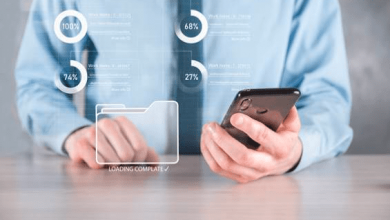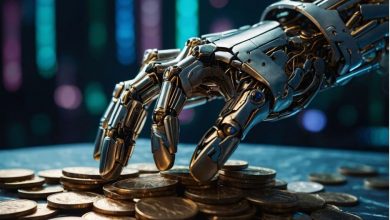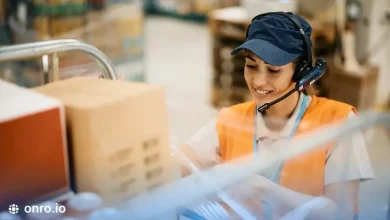Making Health Data Work for People

Imagine a mother in a small town checking her son’s vaccination records before school starts, or a grandfather in Birmingham relying on his medical chart to manage diabetes. These everyday moments depend on health data systems that are accurate, fast, and secure. When those systems work well, they’re invisible. When they don’t, lives can be disrupted. Dr. Snigdha Sahai, an epidemiologist and public health expert, dedicates her career to making sure these systems deliver for people, whether it’s a parent, a patient, or a camper at summer camp.
Why health data matters
Public health systems handle a staggering amount of information, from vaccination records to disease tracking to hospital patient files. In the U.S., the Centers for Disease Control and Prevention (CDC) monitors over 100 notifiable diseases, using data to guide everything from flu season responses to policies on childhood vaccinations.
Dr. Sahai, an MPH-Epidemiology candidate at the University of Alabama at Birmingham (UAB), is on a mission to prevent those failures. Her work blends epidemiology, data analysis, and a knack for seeing the people behind the numbers. “Each piece of data is someone’s story,” she says. “It could be a kid’s allergy record or an elderly patient’s medication history. My job is to make sure those stories don’t get lost.”
Helping people, one dataset at a time
Dr. Sahai’s career is a bridge between complex data and real human needs. At UAB’s Marnix E. Heersink School of Medicine, she studies medication-induced delirium in older adults, a condition that affects up to 30% of elderly hospital patients, according to the National Institute on Aging. Using tools like R and Cheaha’s high-performance computing, she digs into patterns to find ways to shorten hospital stays and help seniors stay independent. It’s the kind of work that could mean a grandmother gets home to her family sooner.
Her impact isn’t limited to hospitals. During a summer internship at Concordia Language Villages in Minnesota, Dr. Sahai worked with 240 campers, analyzing health trends using UltraCamp’s electronic health records. Her efforts led to a 15% drop in illnesses and injuries over five weeks, supporting Sustainable Development Goal 3 for better health and well-being. “I think about a kid with asthma who just wants to play soccer at camp,” she says. “If I can make sure their health needs are met, they get to just be a kid.”
Beyond research, Dr. Sahai serves as a Board Advisor for a health-focused nonprofit, guiding strategic initiatives to translate scientific discoveries into practical solutions. As a Translational Science Consultant and Digital Therapeutics expert, she shapes digital health tools, ensuring data-driven insights reach patients and providers effectively. Her strategic thinking aligns cutting-edge analytics with real-world care, amplifying the impact of public health innovations.
Turning numbers into real change
Dr. Sahai has a gift for turning raw data into solutions that matter. At UAB, she worked on breast cancer gene mapping using the MammOnc-DB platform, analyzing gene patterns to help researchers tailor precision medicine in the treatment of individuals.. Her research, now under peer review, could make cancer care more precise for thousands of patients each year. It’s a reminder: strong data systems don’t just crunch numbers, they give people like a single mom fighting breast cancer a better shot at recovery.
Her time at IQVIA in India shows the same impact on a global scale. There, she managed data for clinical trials on Multiple Myeloma, Tuberculosis, and vaccines, following strict international standards like ICH-GCP. By streamlining how data was collected and checked, she helped speed up trials, getting treatments to patients faster. Her work supported global health efforts, like those tracked by the World Health Organization, which notes that vaccines prevent 6 million deaths annually.
Building stronger communities
Dr. Sahai’s work ripples out to communities. At Concordia Language Villages, her health assessments didn’t just lower injury ratesthey created a safer, more inclusive space for campers from all backgrounds. By strengthening sanitation rules and teaching health basics, she made sure everyone, including kids with weaker immune systems, could join in the fun. It’s a small but powerful example of how data can build a stronger, fairer community.
Globally, her work fits into a bigger picture. As health systems face growing cyber risks and demand for real-time data, reliable systems are critical. The World Health Organization estimates digital health tools could save $200 billion a year by streamlining care and access. Dr. Sahai’s projects, from clinical trials to her book Public Health for Dummies, help make health knowledge and systems approachable for everyone.
A healthier future
Dr. Sahai’s work is laying the groundwork for a better future. Her research on delirium could lead to AI tools that catch risks early, helping hospitals keep patients safer. Her camp health strategies show how data can improve community programs, a model others could follow. As the world faces challenges like aging populations and rising chronic diseases, her approach, blending data with care, offers a path forward.
From a retiree to a camper, Dr. Sahai’s efforts ensure health systems work for everyone. Her work is a quiet promise: every number in a database is a person, and every step toward better data is a step toward a healthier world.





